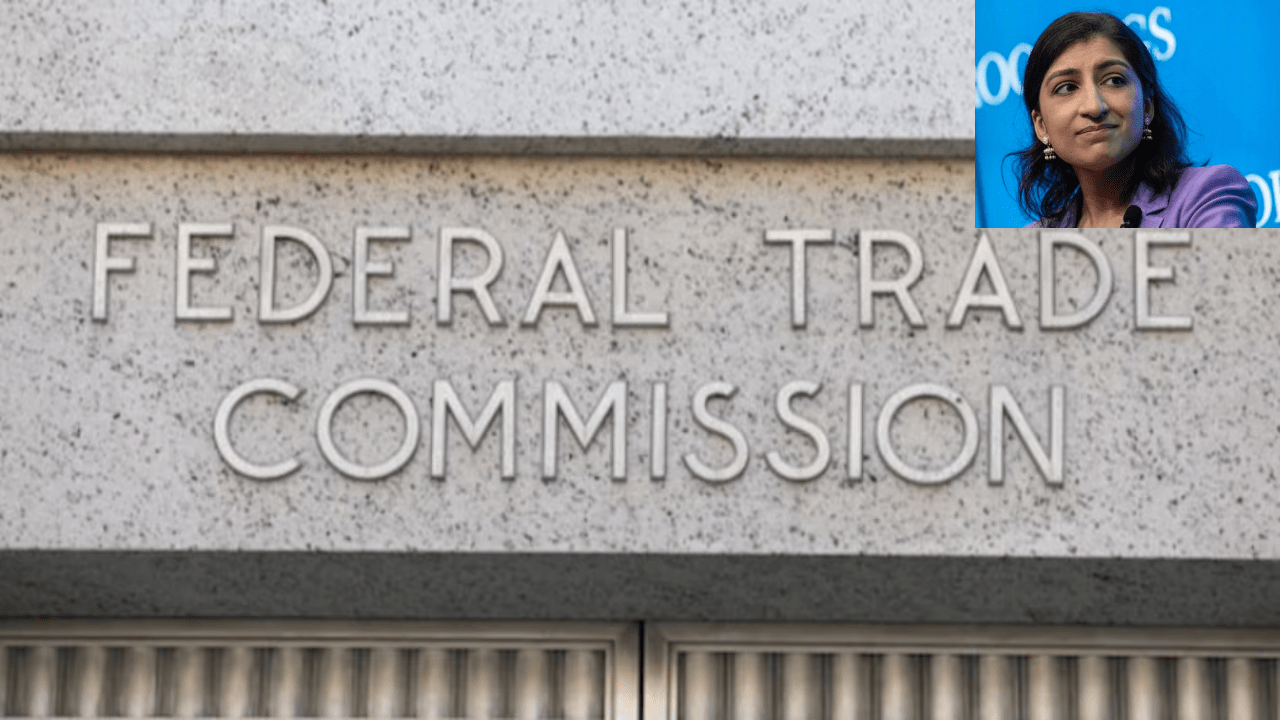FTC Paves the Way for Worker Prosperity, Bans Noncompete Agreements Across U.S. for the Surge of Earnings.

In a closely contested vote on Tuesday, the Federal Trade Commission (FTC) made a landmark decision to effectively outlaw the majority of noncompete agreements in the United States. These agreements, often included in employment contracts, have long been criticized for limiting workers’ mobility and stifling entrepreneurship.
The decision followed a period of extensive public input, with over 26,000 comments pouring in prior to the vote. FTC Chair Lina Khan highlighted the stories of workers who had been adversely affected by noncompete clauses, underscoring the profound impact these agreements can have on individuals’ lives.
“We heard from employees who, due to noncompetes, found themselves trapped in toxic work environments,” Khan stated. “One individual shared how they were unable to leave a job that conflicted with their religious beliefs due to a noncompete clause.”
These firsthand accounts shed light on the broader implications of noncompetes, beyond just economic consequences. Khan emphasized that restricting workers’ economic liberty also curtails their personal freedoms.
The FTC estimates that approximately 30 million Americans, spanning from entry-level workers to corporate executives, are currently bound by noncompete agreements. By eliminating these restrictions, the FTC projects a potential increase in wages totaling nearly $300 billion annually, as workers gain the freedom to pursue better opportunities.
FTC’s Bold Move: Noncompete Agreements Outlawed Nationwide, Sparking Salary Surge for Workers
However, the ban includes a carve-out for existing noncompete agreements involving senior executives, recognizing that these agreements are often the result of negotiation rather than coercion. Nevertheless, the FTC advises against enforcing other existing noncompete agreements.
The vote, split along party lines with a 3-2 margin, drew dissent from Commissioners Melissa Holyoke and Andrew Ferguson, who argued that the FTC was overreaching its authority. Holyoke expressed skepticism about the ban’s legality, predicting that it would face legal challenges and potentially be overturned.
In response to the FTC’s decision, the U.S. Chamber of Commerce swiftly announced its intention to challenge the rule in court, denouncing it as unnecessary and unlawful. The Chamber has long defended noncompete agreements, citing their importance in protecting trade secrets and incentivizing investment in employee training.
Suzanne P. Clark, President and CEO of the U.S. Chamber, criticized the FTC’s ruling as a “dangerous precedent” that could harm both employers and workers alike. The Chamber contends that noncompetes play a vital role in fostering innovation and economic growth.
The FTC’s decision marks a significant shift in labor policy in the United States, with implications for both employers and employees. As the debate over the role of noncompete agreements continues, the ramifications of this ruling are likely to reverberate across industries and the broader economy.
Also Read:

The Psychology of Love: Why Valentines Day Matters More Epic Than You Think
Discover the psychology of love and why Valentines Day is more important than you think. Learn how love impacts the brain, strengthens relationships, and boosts

Premier League Highlights: Arsenal Humiliate Man City 5-1, Spurs and Palace Secure Crucial Wins
Arsenal demolished Manchester City 5-1 in a statement premier league highlights win, reigniting their title hopes. Meanwhile, Crystal Palace stunned Man United 2-0, and Tottenham

How Budget 2025 Impacts the Indian Middle-Class: Major Tax Benefits and Glaring Omissions
Budget 2025 offers major tax relief to the middle class, including zero tax on incomes up to ₹12 lakh. However, it misses out on incentives

Degrees vs Employability: Why “Highly Qualified Degree Holders” Struggle to Find Jobs While “Less Qualified Individuals” Get Hired Faster!
Many highly qualified individuals struggle to secure jobs, while less qualified candidates get hired quickly. This Degrees vs Employability paradox is caused by employer preferences,

The Power of Mindset: Why Looking Poor Doesn’t Make You Poor, but Thinking Poor Does!
Discover why looking poor doesn’t define your wealth but thinking poor does. Learn the power of mindset and how a growth-oriented mindset can lead to

Overthinking: How It’s Damaging Today’s Youth – Causes and Cure in 2025
Understanding how overthinking is silently damaging today’s youth, from its causes rooted in societal pressure and social media to its long-term effects on mental health.
